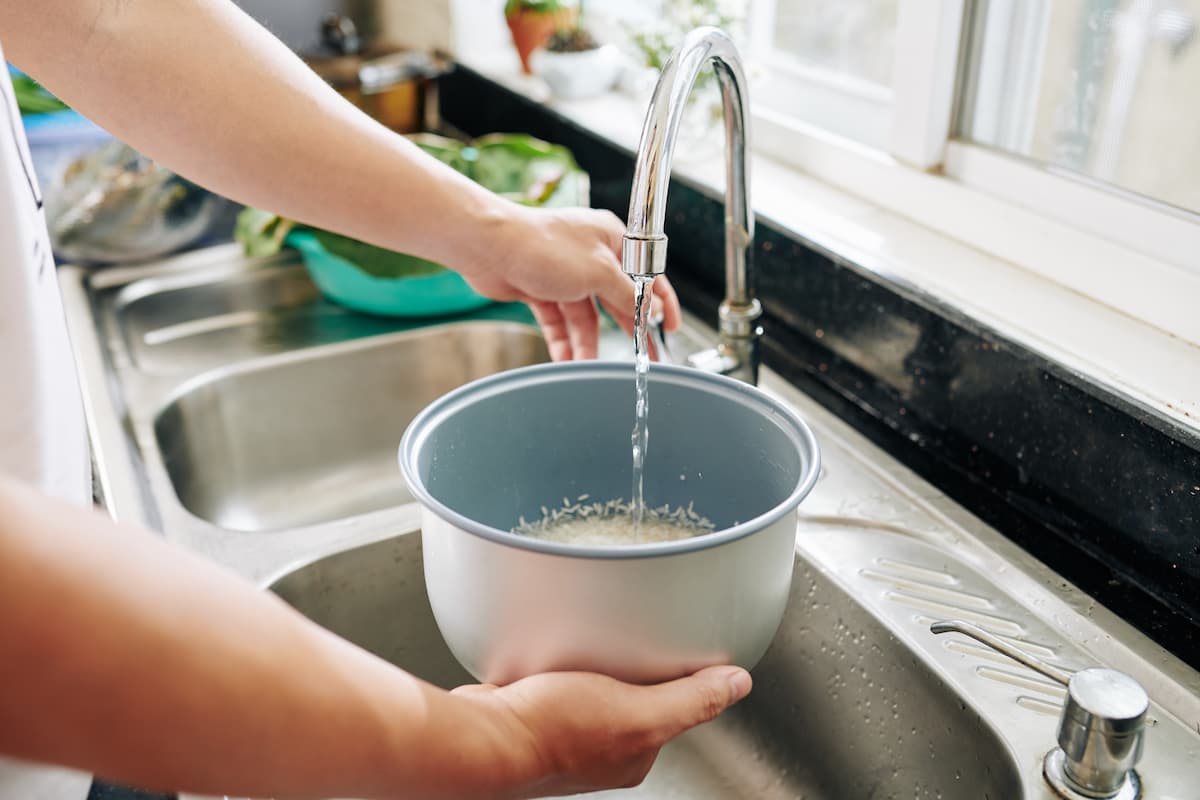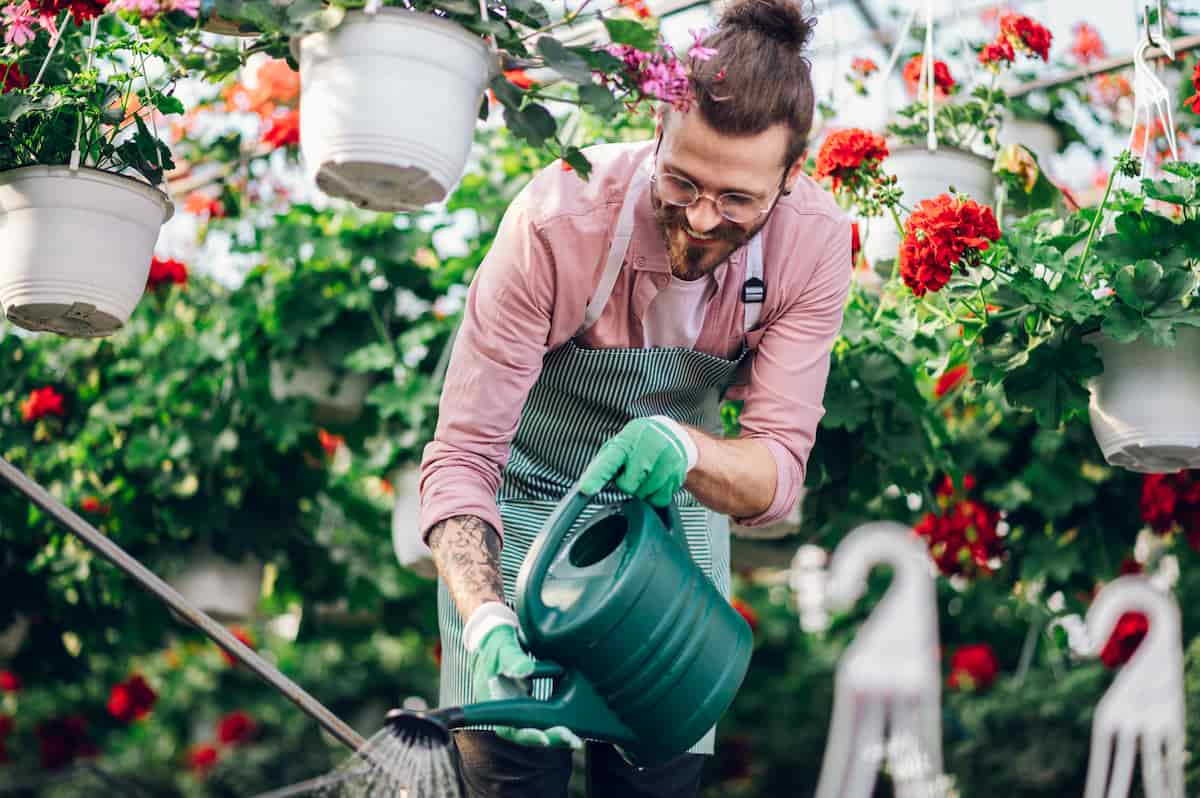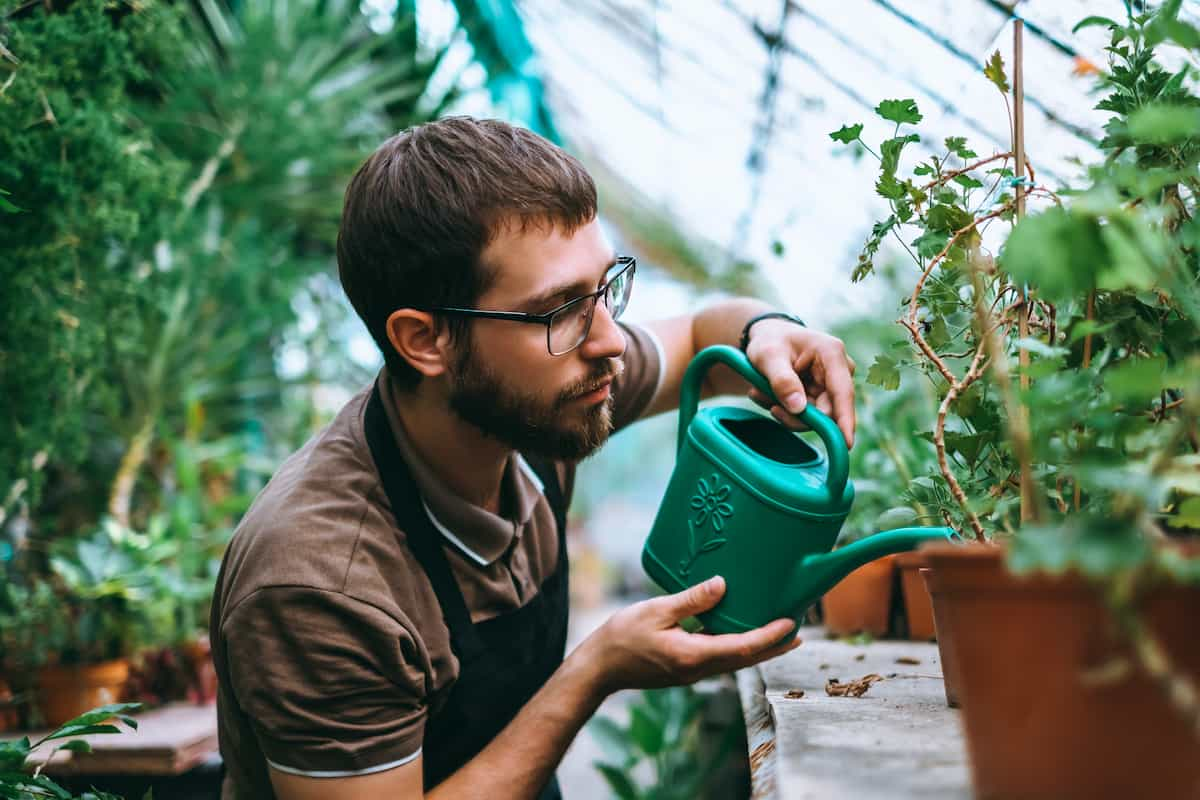Rice water is the starchy water that is left over after cooking rice. It is rich in nutrients and minerals and has many benefits for your garden. Rice water has been used for centuries as a natural fertilizer and pesticide. It is rich in nutrients essential for plant growth, including nitrogen, phosphorus, and potassium. Rice water also contains trace amounts of iron, manganese, and other minerals that can benefit plants. Rice water can be used on all types of plants, including a potted, terrace, indoor, and backyard plants.

Benefits of Rice Water in Your Garden
Benefits of Using Rice Water in Your Garden
Rice water is a great way to give your plants an extra boost of nutrients that can help them thrive. Not only does it make for a great fertilizer, but it’s also incredibly easy to make and apply. Whether growing potted plants in your apartment, tending to terrace gardens on balconies, or caring for backyard plants outside in the sun, rice water can provide all plants with the essential minerals, they need to stay healthy and strong.
Rice water can be an effective pesticide for potted, terrace, indoor, and backyard plants. Rice water is an effective and cheap way to water your plants. It is loaded with nutrients beneficial for plant growth, including nitrogen, phosphorus, potassium, and calcium. Rice water also contains micronutrients such as iron, manganese, and zinc. It can also help to control fungi and bacteria growth in the soil.
Rice water is also known to attract earthworms, improving soil health. Remember a few things to remember when using rice water on your plants. Be sure to dilute the water before applying it to your plants. Too much rice water can harm your plants by causing root rot or other problems. And be sure to discard any leftover rice water after each use; do not store it for future use.
Tips to Make Rice Water for Your Plants
Rice water is an effective and inexpensive way to fertilize your plants. It is rich in nutrients beneficial to plant growth, such as nitrogen, phosphorus, and potassium. Rice water can be used on all types of plants, including the potted, terrace, indoor, and backyard plants.
To make rice water for your plants, boil 1 cup of rice in 2 cups for 30 minutes. Once the rice is cooked, strain the water into a bucket or container. You can then use this water to Water your plants immediately or store it in a cool, dark place for later use. If you have any leftover rice, add it to your compost pile or use it as mulch around your plants. Rice water is a great way to give your plants the nutrients they need to thrive.
In case you missed it: Benefits of Neem Cake Fertilizer: How it Differs from Other Composts

Tips for Using Rice Water in Your Garden
Rice water can be applied to plants through irrigation or foliar spraying. When applying rice water through irrigation, it is essential to ensure that the roots of the plants are well-watered before applying the solution. This will allow the plants to absorb the nutrients more effectively. Foliar spraying should be done early morning or evening when the sun is not strongest.
Rice water is an effective and inexpensive way to water your plants and has many benefits for your plants and the garden. When applied to the roots of plants, rice water helps to promote growth and keeps the plant healthy. When applying rice water as a foliar spray, be sure to use diluted rice water so that it does not damage the leaves of your plants.
When watering your plants with rice water, use lukewarm water. This will help the roots absorb the nutrients more effectively. Apply rice water to the roots of your plants once a week or as needed, based on the size of your plant. For potted plants, empty any excess water that remains in the pot after watering.
Rice water can be applied to plants at different stages of growth. For young plants, rice water can be used as a seedling starter or a foliar spray. Rice water can be used as a root drench or a foliar spray for mature plants. When using rice water as a seedling starter, mix 1-part rice water with two parts water. Seedlings can be transplanted into this mixture once they have germinated and have their first true leaves.
For mature plants, mix 1-part rice water with four parts water. This mixture can be used as a root drench or foliar spray. When using rice water as a root drench, apply it to the base of the plant. For best results, apply in the morning or evening when the sun is not shining directly on the plant. When using rice water as a foliar spray, apply it to the plant’s leaves.
Precautions When Using Rice Water on Your Plants
When using rice water on your plants, there are a few things to keep in mind. First, only use unpolished rice. Second, be sure to wash the rice before using it. Third, only use rice water that has been boiled and cooled; do not use raw or unfiltered water. Fourth, always test the rice water on a small area of your plant before applying it to the entire plant. Lastly, when applying rice water to your plants, be sure to do so in the morning so that the sun can help evaporate any excess moisture.
In case you missed it: Amazing Benefits of Vermicompost for Your Terrace Garden Plants

Conclusion
Rice water is an excellent natural way to help keep your garden thriving. Not only does it provide essential nutrients to plants, but it can also be used as a natural insect repellent and soil conditioner. With the right timing and concentration, you can use this inexpensive resource in all your gardens, whether potted, terraced, indoors, or outdoors.
It is inexpensive to make and easy to use, making it an ideal choice for those looking for ways to fertilize their gardens without breaking the bank. You also get peace of mind knowing that you are using something entirely natural in your garden without harmful chemicals or additives. With its numerous advantages and ease of application, rice water can be a great addition when caring for your plants.
- Feed Your Flock for Less: Top 10 Tips to Save on Chicken Feed
- Ultimate Guide to Ossabaw Island Hog: Breeding, Raising, Diet, and Care
- Hatching Answers: The Top 10 Reasons Your Chickens Aren’t Laying Eggs
- Eggs and Economics: Breaking Down the Cost of Raising Backyard Chickens
- Defend Your Greens: Proven Methods to Keep Iguanas Out of Your Garden
- Ultimate Guide to Cinnamon Queen Chicken: A Comprehensive Guide for Beginners
- Ultimate Guide to California Tan Chicken: Breeding, Raising, Diet, Egg-Production and Care
- Ultimate Guide to Marsh Daisy Chicken: Breeding, Raising, Diet, and Care
- 10 Types of Chicken Farming Businesses You Can Start for Profits